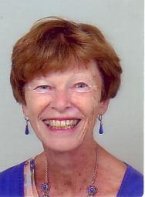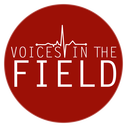Voices in the Field: Professor Henriette Roscam Abbing
| Date: | 16 March 2017 |
| Author: | GHLG Blog |

By Jacquelyn Veraldi and Prof. Brigit Toebes

Professor Henriette Roscam Abbing has a diverse and extensive background in the area of health law. She currently serves as Chairperson of the European Association of Health Law, a Dutch not- for-profit organisation that promotes health and human rights and advises on health law and policy across Europe. She is also an editor for the Dutch Journal on Health Law and the European Journal of Health Law, a member of the Dutch Health Council, and served as a representative to the Council of Europe. Additionally, Roscam Abbing is a former Professor of Health Law at the universities of Utrecht and Maastricht and served as a legal counsellor at the Dutch Ministry of Health, Welfare and Sport. In this interview, Henriette Roscam Abbing tells us about her past career and reflects on the future of health law. This interview is the first publication from the series ‘Voices in the field,’ a joint endeavour by GHLG and IFHHRO .*

Why and how did you get involved with health law?
It was by sheer accident! I was always interested in European matters: in the first half of the 1960s I conducted several internships at the European Coal and Steel Community and then I had a job at the Ministry of Foreign Affairs related to Euratom, where I hardly had anything to do. I quit, looked around for something else and found a position at the Foundation (mostly of art) of Suriname and Dutch Antilles, where I was in charge of writing yearly reports. The position was temporary, as I was filling in for someone who was ill for a long time. In the meantime, I was searching for something more stable and interesting.
As I was always interested in European law-related issues, I was eventually asked by a professor in Leiden to write an exam for a post at the Council of Europe in Strasburg. The result was that they offered me a job at the Public Health division. When I asked what this would entail, the Head of the HR department of the Council of Europe was unable to tell me! He advised me to consult the Ministry of Foreign Affairs, which I did. So I became a functionary at the Public Health division of the Council of Europe, and it is there that my interest for health law came to fruition. However, after some time I felt I needed a change – despite the fact that my supervisor put me in charge of all kinds of interesting projects – otherwise I would have wound up doing the same administrative type of work for the rest of my life. I then decided to get a PhD.
How did your career path develop? Which professional experience did you find important/enjoy the most?
This is where health law became serious to me. My boss, who supported me in my desire to do a PhD, sent me to a health law conference in Brussels (which turned out to be WAML – the World Association of Medical Law – located in Belgium at the time and which was much more interesting than it is nowadays) to represent the Council of Europe and to find a professor who would take me on board for writing my thesis; it was there I met my husband, Prof Henk Leenen. I returned to the Netherlands, started to work at the Sickfund Council (head of the extramural care division) and successfully finished my PhD thesis (International Organizations in Europe and the Right to Healthcare, 1979). Eventually the Ministry of Health asked me to fill in a position as Head of Division of the sick fund entitlements and accreditation of health institutions, a temporary job to fill in for someone on sick leave.
Subsequently, Maastricht University invited me to take the Chair of Health Law at the medical faculty. The then Minister of Health did not want me to leave, so in addition to the (part-time) Chair I held in Maastricht, I became a legal adviser (‘Raadadviseur’) to the Minister; this job lasted until my retirement. In the meantime, I moved from Maastricht University to Utrecht University. The Ministry often sent me to meetings in Brussels and Strasbourg because I ‘knew how it worked’. In reality, it was often that colleagues did not want to burn their fingers: they left the ‘difficult work’ to me. For instance, following a meeting in Brussels where my Dutch colleagues did not speak up against 100% exclusion from blood transfusions for persons with HIV, a Scandinavian approached me to thank me for having been ‘just’/fair on the position of homosexuals. Apart from the outset of my career at the Ministry of Foreign Affairs, I enjoyed everything I did.
Could you mention one or two milestones that you have achieved in the field of health law?
Let me give two examples of milestones which, in my opinion, have had great importance, notably for patients:
- At the Ministry of Health I took the initiative in concluding a formal agreement between Eurotransplant countries in relation to cross-border exchange of organs at the ministerial level – this is because I thought if something would go wrong with the organ exchange, the minster would be held responsible and patients would suffer. Eventually the agreement was signed by all parties participating in Eurotransplant.
- I arranged an official deal between life insurance companies and the Royal Dutch Medical Association (KNMG): ‘Covenant Causes of Death’. A special committee composed of representatives of insurance companies, insured persons, patient organisations, and KNMG were in charge of looking into cases of alleged fraud. This was important as it would prevent unjustified refusals of insurance allowances for next of kin – a situation that occurred frequently. I succeeded because I had threatened the insurance companies that the Minister would inform Parliament of their ‘malpractices’.
In your opinion, what are currently the most important health and/or legal challenges that health lawyers in Europe and beyond are confronted with? What should health lawyers in Europe and beyond focus on?
There are nowadays too many important legal challenges. I believe what I have indicated in my inaugural lecture at Utrecht University is still relevant: there is a need for protection of the interest of the patient as a primary objective. Health lawyers should work together more to bring this about through necessary changes in health care systems and policies, rather than having economic interests prevail.
And also: health lawyers must communicate with medical professionals, they have to shape rights of the patient in daily practice. Therefore, health law should be a compulsory part of the medical curriculum.
Are there any other lessons that you would like to share with us when it comes to health law in Europe?
More co-operation between health lawyers in Europe (and, where indicated, beyond) for the best interest of the patient is, I believe, a conditio sine qua non. Additionally, medical professionals and health lawyers should engage in an ongoing dialogue, not only nationally but also at a European level, within the EU context. After all, both professional groups are there for the patient.
*Voices in the Field is a multimedia interview series that shares the stories of experienced professionals in the field of health and highlights the role of human rights in their careers. This project is brought to you by Global Health Law Groningen and IFHHRO, and is directed by Jacquelyn Veraldi and Nicole Rusli. Find out more about what inspired Voices in the Field.

